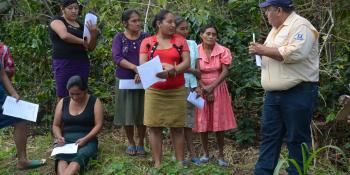The International Conference on Climate Services
Climate conditions can determine when and where epidemics of diseases such as malaria and meningitis will strike or where food stocks will diminish. Shifts in rainfall patterns over a region can increase the likelihood of wildfires and food insecurity in one year, and flooding and mudslides in the next. Easily accessible and timely scientific information can help societies not only limit the economic and social damage caused by climate-related disasters, but also take advantage of opportunities provided by favorable conditions. Climate services are meant to fill this need. They will ensure that the best available climate science is effectively communicated with agriculture, water, health and other sectors, to develop and evaluate mitigation and adaptation strategies.
Climate conditions can determine when and where epidemics of diseases such as malaria and meningitis will strike or where food stocks will diminish. Shifts in rainfall patterns over a region can increase the likelihood of wildfires and food insecurity in one year, and flooding and mudslides in the next. Easily accessible and timely scientific information can help societies not only limit the economic and social damage caused by climate-related disasters, but also take advantage of opportunities provided by favorable conditions. Climate services are meant to fill this need. They will ensure that the best available climate science is effectively communicated with agriculture, water, health and other sectors, to develop and evaluate mitigation and adaptation strategies.
The International Conference on Climate Services aims to initiate a dialogue between experienced climate information providers and those who currently use or wish to use such information.
The objective of the ICCS is to ultimately establish a climate services pilot program or network, with support from an international set of partners with experience in the implementation, design or use of climate information and services. The hope is that the conference will engender expressed commitments from conference participants.
The conference is being organized by the International Research Institute for Climate and Society (IRI), the Earth Institute Columbia University, the Climate Service Center (CSC), MetOffice and the National Center for Atmospheric Research (NCAR).
Leader of the CCAFS theme 2:Adaptation through Managing Climate Risk, James Hansen, will be presenting his research at the conference.


